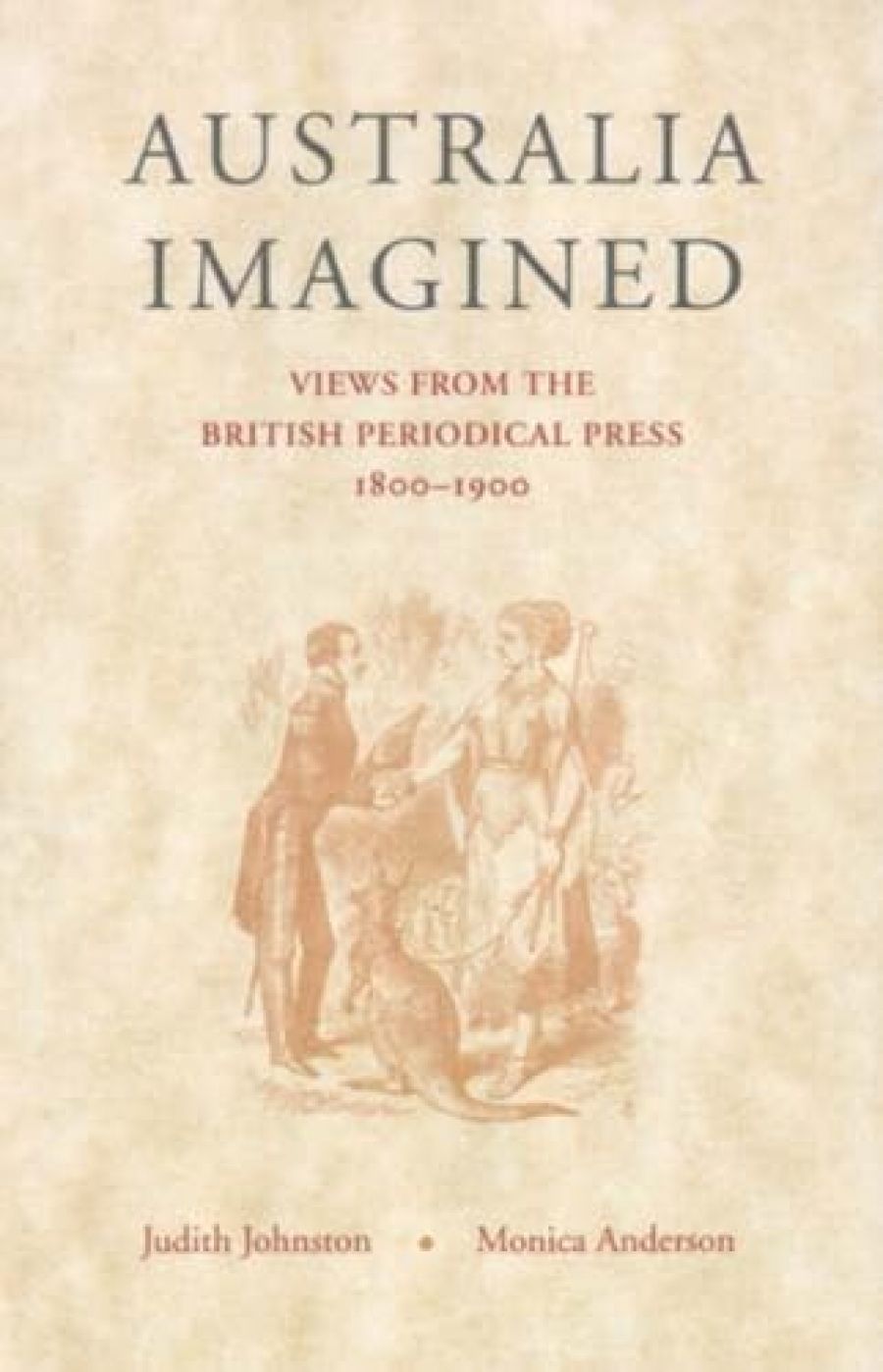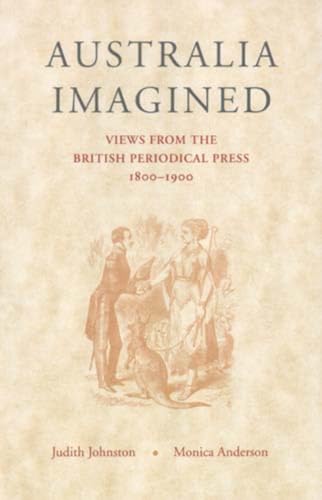
- Free Article: No
- Contents Category: Non-fiction
- Review Article: Yes
- Article Title: View from above
- Online Only: No
- Custom Highlight Text:
Judith Johnston and Monica Anderson have assembled a book full of quotable quotes for future scholars: ‘The typical Australian is an Englishman with a dash of sunshine in him’; or ‘Why has God given to England nearly all the waste places of the earth, unless she is to fill them?’ (1899). Perhaps even more chilling: ‘the acknowledgement of sin amongst a good many blacks proves the working of the Spirit of God’ (1861). Australasia might be ‘the Paradise of the working man’, but it was ‘the Sahara of the scholar’ (1895). The book reminds us how commonly ‘Australia’ was imagined as ‘Australasia’. The idea of a ‘Federated Australasia’ embraced the Australian colonies, Fiji, British New Guinea, and ‘any other British territories in the South and West Pacific’ – not least, of course, ‘the Britain of the South, New Zealand’ (1896). On the other hand, ‘of all the disunited states of Greater Britain, Australasia appears to be the most disunited’ (1890).
- Book 1 Title: Australia Imagined
- Book 1 Subtitle: Views from the British periodical press, 1800–1900
- Book 1 Biblio: UWA Press, $38.95 pb, 244 pp
- Book 1 Cover Small (400 x 600):

- Book 1 Cover (800 x 1200):

Despite its unimaginative title, Australia Imagined is an interesting collection of articles, reviews, sketches and cartoons about Australia, selected from the British periodical press of the nineteenth century. Although many of the sentiments are familiar, the volume does have the potential to complicate our understanding of British and Australian attitudes. It successfully enacts the editors’ aims of suggesting how the periodical press operated not as the vehicle for a singular colonial discourse but as a space of conversation and debate, with many different voices, views, occasions and readers.
Given the editors’ interest in the periodical press as such, in the medium itself, it is disappointing that they don’t provide more detail about the periodicals from which the selections have been drawn. Some are familiar – Punch or the Westminster Review – others much less so; and there is an intriguing range, from august reviews to the Boy’s and Girl’s Own Paper. The book is silent about the nature of the different papers, their provenance or platform, their markets and place in the print economy.
Similarly there is little discussion of the principles of selection. These seem largely thematic; the selections are organised under headings such as Transportation, The Aboriginals, British Emigration, Colonial Life, Women, Men, The Chinese and Federation. This make good sense, although a small number of pieces scarcely seem interesting or novel enough to justify their place (the editors include a seventeen-page list of other pieces they might have included).
What can be said is that the book is not a collection of ‘British views of Australia’, except in the extended sense that those writing from Australia or as Australians were also writing as British men and women. Part of the point of the collection, though not made explicit, is to show ‘Australians’ themselves as participants in a global British periodical press. (The point is made that Australians participated as consumers.) Essays by those born or resident in Australia sit alongside others by visitors and those who never left home. Some of the most interesting material is by familiar figures such as Catherine Helen Spence, Henry Parkes and Louisa Lawson (on the ‘Australian bush-woman’, uncannily foreshadowing ‘The Drover’s Wife’). This mixing is a strength, so it is strange that it’s not developed in the editors’ introduction. Some of the rather wooden discussion of identity stereotypes might have been sacrificed in its place. Nonetheless, they make a persuasive case for the importance of the periodical press in the formation of both British opinion and Australian identity.
Their emphasis on the significance of ‘independence’ as a central quality associated with Australian identity, ‘young’ white manhood and Australian girlhood, domestic as well as public life, resonates throughout the selections. Independence rather than democracy emerges as a key to the meanings of Australia. It is tied, as the editors suggest, to the meanings of women being given the vote, ‘because they were part of the broader public project of colonisation’. Egalitarianism tends to mean ‘open doors to every vocation in life … the maximum of comfort and the maximum of freedom’ rather than rigorous political principles.
Henry Parkes reveals that an independent Australian nation, a prospect he insists is in the realms of possibility, would for him be very much a second-best option: better than colonial dependency but far inferior to Australia’s ‘higher destiny’, to be part of England herself in one ‘world-embracing empire’, as the British States of Australia.
The collection includes an impressively argued piece from the North British Review (1845–46) arguing against the ‘most revolting and disgraceful sophism’ by which the dispossession of Aborigines from their lands is justified, the idea that because the natives do not cultivate the land they have no rights of property. Aboriginal proprietary rights, it stresses, are as exclusively exercised as those pertaining ‘in any English village or Highland parish’.
A survey from Leisure Hour (1852) includes an equally impressive analysis of the Australian environment, despite buying into the antipodean inversion of songless birds and scentless flowers. Another piece from 1844 is wonderfully prescient about the capacity of Western Australia to manufacture wine, ‘for which the soil and climate of the colony are found to be eminently adapted’.
Finally, the Working Man’s Friend (1852) printed a letter from an emigrant who has already been on the point of marriage twice, but broke off the first because the ‘fair one’ wouldn’t stop whistling, and the second ‘because she said she could drink as much as me without being drunk’. Colonial life in Australia still has the capacity to surprise.


Comments powered by CComment